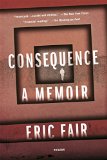Summary | Excerpt | Reviews | Beyond the Book | Readalikes | Genres & Themes | Author Bio

A Memoir
by Eric FairAbu Ghraib
January 2004
One of the interrogation booths at Abu Ghraib has comfortable chairs. I like to use this booth because there's a small space heater inside that cuts through the chill of the Iraqi winter. There's even a hot plate to boil water for tea, but it only works when you run an extension cord from the generator, and that prevents you from closing the door all the way. I'm interrogating an Iraqi general today, so I make the tea.
It's hard to schedule this booth because everyone wants to use it, and we're only supposed to use it when we have someone important to talk to. It's always a good thing if you're interrogating a former Iraqi army officer, especially a major or a colonel. And if you get a former general, like today, then the booth is yours for sure.
The comfortable interrogation booth is designed for an approach called change of scenery. The prisoner is supposed to think he's somewhere else; he's supposed to be tricked into thinking he's just holding a normal conversation in an office building or his living room; he's supposed to forget he's being interrogated at Abu Ghraib prison. But it's still just a plywood interrogation booth that smells like fresh-cut lumber, and it's still surrounded by the mud and the filth and the incoming mortar rounds that mark Abu Ghraib.
It's early morning—the afternoon sun is still a few hours away—so when two U.S. Army soldiers deliver the general to the booth he is shivering from the cold. I haven't had time to read the screening report, so I don't know much about him, but I'm sure his story is similar to so many of the others I've already heard. He's Shia, which means he probably commanded some poorly trained army unit that probably had more men than rifles. And he probably couldn't pay his men because he embezzled the unit's payroll in order to fund the bribes that got him promoted to general in the first place. He probably deserted during the invasion, never wanted to fight U.S. troops, and just wanted to go home and live in an Iraq free of Saddam Hussein. This is what all the former generals tell us. None of us believe it.
The report says something about the general's sons being involved in anti-Coalition activities, which doesn't make much sense because he's Shia, and it's January 2004 and the Shia haven't turned their guns on us yet. But it's hard to know what's true inside Abu Ghraib, and it's hard to make sense of anything going on in Iraq.
I'm working with one of the two good translators today. She grew up in one of Baghdad's Christian communities and moved to Michigan during high school, so unlike most translators, she's fluent in both languages. And she's fast. She doesn't wait for you to finish your sentences the way the other translators do, or ask you to repeat yourself, or waste time debating the exact meaning of a word. She talks as you talk, making the conversation seamless.
I'm supposed to collect information about the location of the general's sons, but like so many things in Iraq, it's an impossible task. He's been detained since October 2003. It's unclear what, if anything, he's done wrong. He's had no contact with his family, no information about the outside world, and no cooperation from the men who have imprisoned him. My task is to gain his trust and convince him to betray his sons.
By the time I've read the initial screening report and gathered basic background information, I've given up. I shouldn't be here. I should have quit by now. A single month at Abu Ghraib is enough to know that all of this is wrong, but I stay, in hopes of salvaging the experience and finding some way to excuse what I've done. With each day, the hole gets deeper.
Excerpted from Consequence by Eric Fair. Copyright © 2016 by Eric Fair. Excerpted by permission of Henry Holt and Company. All rights reserved. No part of this excerpt may be reproduced or reprinted without permission in writing from the publisher.




The silence between the notes is as important as the notes themselves.
Click Here to find out who said this, as well as discovering other famous literary quotes!
Your guide toexceptional books
BookBrowse seeks out and recommends the best in contemporary fiction and nonfiction—books that not only engage and entertain but also deepen our understanding of ourselves and the world around us.